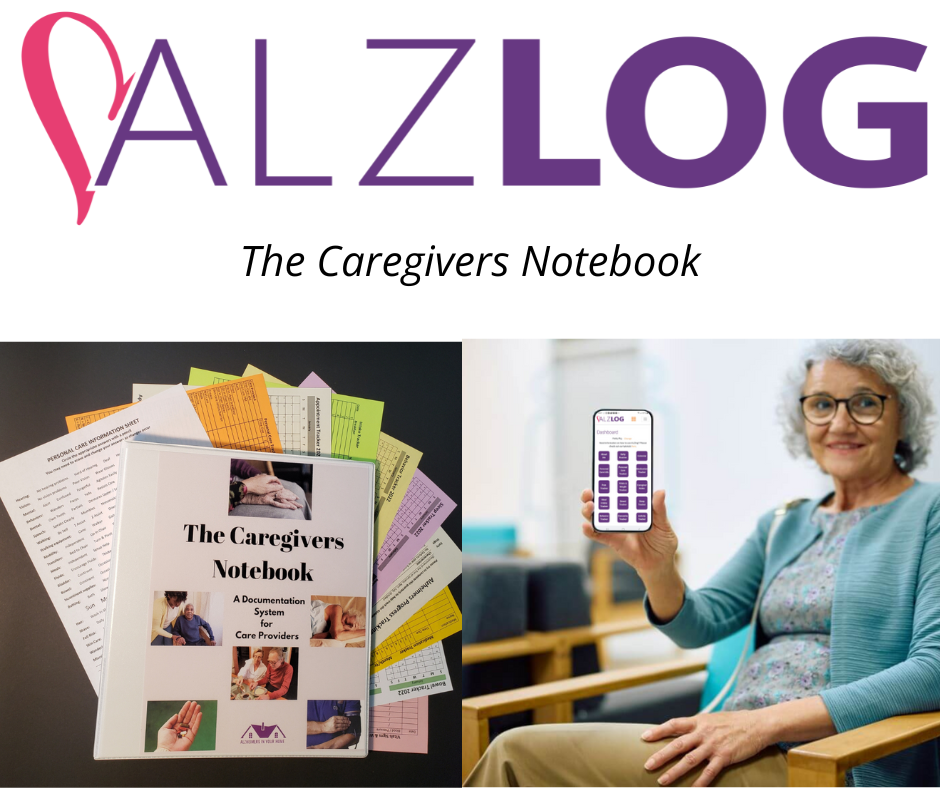Caring for a loved one with dementia can be both rewarding and challenging, especially when aggressive behaviors arise. For many caregivers, the sudden outbursts of anger, frustration, or physical aggression can be frightening and difficult to manage. If you’re navigating this stage of dementia care, know that you are not alone, and there are practical steps you can take to manage and reduce these behaviors. In this blog, we’ll explore how to recognize aggression in someone with dementia, why early intervention is essential, how to de-escalate tense situations, and when to call the doctor.

Caregiver Carol’s Story: How a Daily Medication Transformed Our Nights and Days
As a caregiver for my husband, Peter, I never imagined how quickly dementia would change his behavior. At first, his mood swings were mild, just small moments of frustration when he couldn’t find the right words or forgot something important. But as the disease progressed, those moments became more frequent—and more intense.
One of the most difficult changes was his aggression. It wasn’t violent at first, but it was enough to cause me concern. He’d become agitated in the evenings, often yelling or becoming upset for no apparent reason. He’d pace back and forth, unable to sit still, and I could see how his frustration grew as the night went on. It was exhausting for both of us, especially when it interfered with his sleep. He would often be up several times during the night, which left both of us feeling drained the next day.
But over time, Peter’s aggression became more physical, and it started to make me fear for my safety. On a few occasions, he became so upset that he would lash out without warning. One evening, when I tried to help him get settled for bed, he suddenly shoved me away, his face twisted in confusion and anger. I wasn’t injured, but I was shaken. The emotional toll was just as heavy—my heart would race whenever I had to step in to help him with something, always bracing myself for the next outburst.
That’s when I knew something had to change. I couldn’t keep living in a state of fear, and I could see that Peter was suffering too. His frustration and aggression seemed like a cry for help, and I needed to find a way to make things easier for both of us.
I turned to his doctor, who suggested adding a daily medication used to treat mental health issues at bedtime to help him relax and manage his aggression. The medication wasn’t meant to sedate him, but it was designed to calm his mind and help him sleep through the night. Peter had trouble falling asleep and staying asleep, and we’d both been losing so much rest. This new medication was aimed at reducing his nighttime restlessness, which in turn would hopefully ease his daytime agitation and aggression.
The results were remarkable.
Not only did Peter sleep more soundly, but I noticed a significant change in his behavior during the day. Without the constant agitation and restlessness that used to follow him into the morning, he was calmer and more present. His frustration levels decreased, and we could actually enjoy quiet moments together—whether it was watching a favorite TV show or having a conversation without interruptions.
The best part? I finally got a good night’s rest, too. I could sleep without fear of being woken up in the middle of the night by his agitation or aggression. The anxiety I’d felt about his behavior started to lessen, and I no longer worried that I’d be hurt or that the situation would escalate unexpectedly. I felt more secure, both physically and emotionally, and that made a world of difference in how I approached each day.
While I never imagined we’d rely on medication to manage Peter’s dementia symptoms, I’m grateful that it’s helped him—and me—find some peace. It’s made the difficult days a bit easier, and it’s reminded me that it’s okay to lean on the medical team when things feel out of control. This experience taught me that taking steps to ensure our safety and well-being is just as important as providing care and love.

1. Recognizing Aggression in Dementia
Aggression is one of the more challenging behaviors in dementia, and it can appear in various forms. Understanding what aggression looks like is the first step in managing it effectively.
What is aggression in dementia?
Aggression in dementia is typically a response to confusion, frustration, or discomfort. It might manifest as verbal outbursts (e.g., yelling or swearing), physical aggression (e.g., hitting, pushing), or other forms of resistance to care. However, not every moment of agitation is aggression; it’s important to distinguish between a moment of frustration and a more intense aggressive response.
Signs of aggression to watch for:
- Verbal aggression: Yelling, swearing, or making accusations.
- Physical aggression: Hitting, grabbing, or pushing others.
- Nonverbal signs: Clenched fists, tense posture, or agitation.
Common triggers for aggression:
- Confusion or frustration due to cognitive decline.
- Environmental factors like loud noises or too much stimulation.
- Physical discomfort such as hunger, pain, or needing the bathroom.
- Communication barriers where the person with dementia may struggle to express themselves or understand others.
Recognizing the signs and knowing the common triggers can help you respond appropriately when aggression arises.

2. Why Early Intervention is Important
Addressing aggression early can help prevent dangerous escalation and create a safer, more peaceful environment for both the caregiver and the person with dementia.
Preventing escalation:
Aggression often signals that something is bothering the person, and early intervention can help address the underlying issue before it becomes more serious. Whether it’s a physical discomfort, frustration with communication, or environmental stress, addressing the cause of aggression early can prevent more dangerous behaviors from developing.
Maintaining caregiver and patient safety:
When aggression is not managed early, it can lead to physical harm for both the caregiver and the individual with dementia. Proactively intervening when aggression begins allows caregivers to maintain a safe environment.
Improving quality of life:
By de-escalating aggression early, you improve the quality of life for both you and your loved one. A calmer environment can reduce stress for caregivers and patients alike, fostering a more positive caregiving experience.
Protecting long-term emotional health:
Consistently addressing aggression helps reduce caregiver burnout, frustration, and emotional strain. It’s essential for caregivers to maintain emotional well-being to provide the best possible care.

3. How to De-escalate Aggressive Behavior
De-escalating aggressive behavior is about maintaining a calm, compassionate approach to the situation. Here are some strategies to help you manage aggression effectively:
Stay calm:
One of the most important things you can do is remain calm yourself. Take a deep breath and resist the urge to react with frustration. If you stay calm, it can help soothe your loved one and prevent further escalation.
Use non-threatening body language:
Ensure that your body language is non-confrontational. Avoid standing over the person or pointing your finger. Keep your hands visible and open, and use a gentle tone of voice.
Distract and redirect:
Sometimes, distracting your loved one with a favorite activity, music, or a calming object can break the cycle of aggression. Offering simple choices (e.g., “Would you like to listen to some music or go for a walk?”) can provide a sense of control and shift their focus.
Ensure physical comfort:
Physical discomfort, such as hunger or the need to use the bathroom, can be a trigger for aggression. Check if your loved one is uncomfortable and address their physical needs.
Validate feelings:
Even if the aggression seems illogical, acknowledge the emotions behind the behavior. For example, if your loved one is angry or frustrated, you might say, “I understand you’re upset. It’s okay, we’ll figure this out.”
Provide a safe space:
If things get too heated, gently remove yourself and your loved one from the stressful environment. This can provide a moment to cool down and reassess the situation in a calm setting.

4. Medications to Help Calm Aggression
In some cases, medications may be necessary to manage aggression in dementia. If your loved one’s aggressive behaviors are frequent or severe, it’s important to discuss medication options with their doctor.
Why medications might be necessary:
For some individuals with dementia, managing aggressive behaviors with medication can be an essential part of their care plan. Medications help reduce agitation, calm heightened emotions, and prevent outbursts that could be dangerous for both the caregiver and the patient.
Types of medications commonly used for aggression in dementia:
- Antipsychotics: Medications like Risperidone or Olanzapine are often prescribed for severe aggression and agitation. However, these should be used with caution due to potential side effects.
- Antidepressants: Medications like Sertraline or Fluoxetine may help reduce aggression triggered by underlying depression or anxiety.
- Mood stabilizers: Valproic Acid and other mood stabilizers can help with irritability and violent outbursts.
- Anti-anxiety medications: Lorazepam and similar drugs can address anxiety-related aggression or agitation.
- Sedatives: Medications like Trazodone may be used to help calm the person and reduce sleep disturbances.
Daily medications for ongoing calmness:
Some people with dementia take medications daily to help keep them calm and prevent aggression. Anti-anxiety medications or mood stabilizers may be prescribed to reduce the likelihood of outbursts.
Monitoring medications:
It’s important to work closely with your healthcare provider to monitor the effectiveness and potential side effects of any medications. Regular check-ups will ensure that the medication is helping your loved one manage aggression without causing harm.
5. When to Call the Doctor
If your loved one’s aggression becomes more frequent or intense, it is time to call their doctor. Here’s when you should seek professional help:
Changes in aggression patterns:
If the aggression is occurring more often, with increased intensity, or in situations that wouldn’t typically trigger it, it’s time to consult a doctor.
Signs of possible medical issues:
Aggression can sometimes signal underlying medical problems such as infections (e.g., urinary tract infections), pain, or medication side effects. If you suspect a medical issue, don’t hesitate to call the doctor.
Escalation beyond what you can handle:
If the aggression becomes uncontrollable or dangerous, or if you’re unsure how to safely handle the situation, it’s important to seek medical advice or additional support.
Tracking Aggressive Behaviors to Share with the Doctor
When managing aggression in someone with dementia, tracking the behaviors and identifying patterns can be incredibly helpful for both caregivers and healthcare providers. This record allows the doctor to gain a better understanding of the triggers and frequency of aggression, which can be useful for adjusting medications or care strategies. Here’s how you can track aggressive behaviors effectively:
Why Tracking Aggression is Important
-
Identify patterns: By documenting aggressive episodes, caregivers can identify patterns related to time of day, specific triggers, or environmental factors that may be contributing to the aggression.
-
Effective communication with the doctor: A detailed log of aggressive behaviors can help your doctor better understand the frequency, intensity, and possible causes of the aggression. This will make it easier to discuss potential changes in medication, treatment plans, or non-pharmacological interventions.
-
Track the effectiveness of treatments: Keeping a log can help you and your healthcare team see how well medications or other strategies are working. If you notice a reduction in aggressive episodes after starting a new treatment or making environmental changes, you’ll have the data to support that.
What to Track
-
Date and Time: Record the date and time of each aggressive episode. This helps determine if aggression is happening at certain times of day, such as during sundowning or when the person is tired.
-
Description of the Behavior: Document the specific actions or words used during the episode. Was it verbal aggression (e.g., yelling, swearing)? Was it physical aggression (e.g., pushing, hitting)? The more detailed the description, the better.
-
Duration: Track how long the aggressive episode lasts. Some aggression may pass quickly, while other times it may persist for longer periods, requiring more intensive interventions.
-
Triggers: Identify potential triggers for the aggression. This could include things like:
-
Physical discomfort (e.g., hunger, pain, needing the bathroom)
-
Environmental factors (e.g., loud noises, bright lights)
-
Communication barriers (e.g., frustration from not being able to express oneself)
-
Changes in routine (e.g., unfamiliar people, places, or events)
-
Emotional triggers (e.g., feelings of insecurity, confusion, or frustration)
-
-
Response to De-escalation Techniques: Note how well any calming techniques or interventions worked (e.g., using soothing words, offering a distraction, or giving the person space). This will help determine what strategies are effective in managing aggression.
-
Medication Changes: If there have been any changes in medication, dosage, or routine, be sure to note them and track whether the aggression increases or decreases in response. This helps the doctor assess the effectiveness of medication.
How to Track the Information
-
Daily Log: Keep a daily journal or use a digital tool like the Alzlog app to record incidents of aggression. A log that’s easy to fill out on the go is helpful for consistency.
-
Notes on Behavior Patterns: Keep track of other factors that might be affecting behavior, like changes in the weather, routine, or social interactions. This can provide further context for understanding the aggression.
-
Share with the Doctor: Bring the log to your doctor’s appointments so you can have an informed conversation about the behaviors you’ve tracked. Your doctor can use this information to adjust the treatment plan or suggest new strategies.
Tips for Tracking
-
Be consistent: Try to record information every time an aggressive episode occurs, even if it seems minor. This helps build an accurate picture of the behavior.
-
Keep it simple: You don’t need to write lengthy reports. A quick note with key details will be enough for the doctor to get a sense of the aggression pattern.
-
Be objective: Try to avoid emotional language when recording incidents. Stick to facts—what happened, when it happened, and what actions were taken. This will help provide a clearer picture for the healthcare team.
Using This Information for Better Care
Tracking aggressive behaviors can be an essential part of improving your loved one’s care. By sharing the information you’ve recorded with their doctor, you help them make more informed decisions about treatment options, including adjusting medications, trying new strategies, or referring to specialists like a geriatric psychiatrist.
Remember, managing aggression is a process, and it may take time to find the right combination of strategies and treatments. The key is being proactive, consistent, and open with your healthcare provider. By tracking behaviors, you’re taking an active role in your loved one’s care and working to improve their quality of life.

6. Additional Tips for Caregivers
Self-care for caregivers:
Caring for someone with dementia can be exhausting. Be sure to take time for yourself—whether it’s a walk, time with friends, or simply a quiet moment to recharge. Caregiver burnout is real, and taking care of your own physical and emotional well-being is crucial.
Seeking professional help:
If aggression becomes unmanageable, consider seeking professional support. This could be through counseling, therapy, or respite care services. You’re doing the best you can, and it’s okay to ask for help when you need it.
Conclusion: You Don’t Have to Do This Alone
Aggression in dementia care is a difficult but common challenge, and it can feel overwhelming for caregivers. With the right strategies, early intervention, and, when necessary, medications, aggression can be managed effectively. Remember, you don’t have to face this journey alone. Stay patient, stay informed, and reach out for support when needed. You are doing important, compassionate work, and your loved one is lucky to have you by their side.
If you’re dealing with aggressive behavior in your loved one with dementia, we’d love to hear your thoughts and experiences. Join the conversation in our private caregiver support group, where you can find advice and connect with others facing similar challenges. And for additional support, be sure to check out our resources, including the Alzlog app and the Caregiver’s Notebook.
Hi, I'm Larea, I am a Registered Nurse specializing in Dementia Care, with 30 years of experience supporting dementia patients and their families. Over the years, I have provided care in diverse settings, including homes, hospitals, nursing homes, assisted living facilities, and hospice. My passion is guiding caregivers, sharing my knowledge and experience to help them navigate the challenges of dementia care with confidence and compassion.










